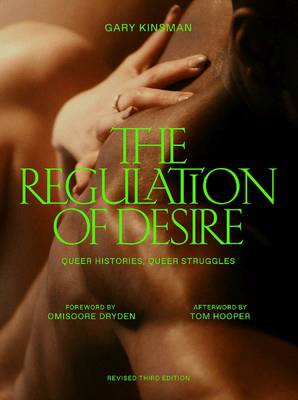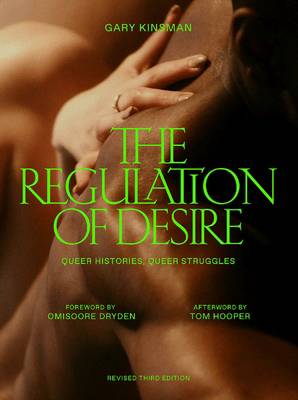
- Afhalen na 1 uur in een winkel met voorraad
- Gratis thuislevering in België vanaf € 30
- Ruim aanbod met 7 miljoen producten
- Afhalen na 1 uur in een winkel met voorraad
- Gratis thuislevering in België vanaf € 30
- Ruim aanbod met 7 miljoen producten
Zoeken
The Regulation of Desire, Third Edition
Queer Histories, Queer Struggles
Gary Kinsman
Paperback | Engels
€ 76,45
+ 152 punten
Omschrijving
The third edition of this revolutionary text includes new chapters and an introduction from the author himself that contextualizes the work within today's fight for liberation and equality in Canada. Originally published in 1987 during the panic around HIV/AIDS, The Regulation of Desire was the first book-length study of sexual regulation in Canada. Drawing on his long experience in anti-capitalist groups, the gay liberation movement, anti-racist and anti-police organizing, and AIDS activism, Gary Kinsman's investigation of the social forces that produce both sexual regulations and resistance and enforce queer, trans, and Two-Spirit oppression laid the groundwork for subsequent studies of queer sexuality in Canada and beyond. It quickly became an essential work of scholarship and an expanded second edition appeared in 1996. Ranging from the beginning of colonization to the twenty-first century, Kinsman's historical-materialist approach attends to the specificities of race, class, and gender to show how desires, pleasures, and sexualities have been organized and regulated by state relations--in the service of patriarchal, capitalist, and imperialist relations. At the same time, Kinsman documents the emergence of Indigenous, gay, lesbian, and trans resistance, and the formation of queer and trans movements and communities. This new edition of The Regulation of Desire includes new chapters on the rise of neoliberal queerness and the mainstreaming of white-defined homosexuality since the late 1990s, along with a new introduction by the author examining how the COVID-19 pandemic, the housing and poverty crisis, and the necessity of Indigenous liberation and police/prison abolition intersect with and transform the politics of queer liberation. This new edition also features a foreword by OmiSoore Dryden and an afterword by Tom Hooper, plus updates to the text addressing topics such as the limitations of legal reform and same-sex marriage, and the emergence of transgender activism and abolitionist perspectives, moving far beyond limited rights approaches.
Specificaties
Betrokkenen
- Auteur(s):
- Uitgeverij:
Inhoud
- Aantal bladzijden:
- 480
- Taal:
- Engels
Eigenschappen
- Productcode (EAN):
- 9781988111476
- Verschijningsdatum:
- 16/05/2024
- Uitvoering:
- Paperback
- Formaat:
- Trade paperback (VS)
- Afmetingen:
- 153 mm x 228 mm
- Gewicht:
- 1002 g

Alleen bij Standaard Boekhandel
+ 152 punten op je klantenkaart van Standaard Boekhandel
Beoordelingen
We publiceren alleen reviews die voldoen aan de voorwaarden voor reviews. Bekijk onze voorwaarden voor reviews.











